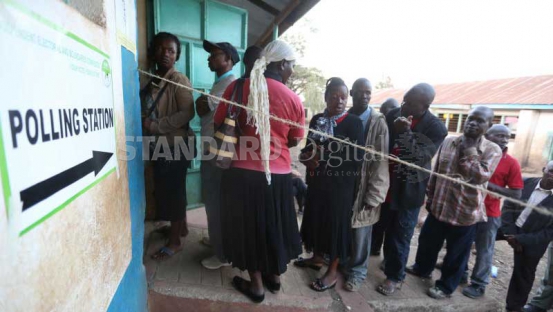×
The Standard e-Paper
Home To Bold Columnists

The modest scope and depth of voter education in the country as it hurtles to the August 8 poll has added to fears of a less credible poll, observers have warned.
Compounding the worry is the belatedly passed electoral laws which changed electoral operations as well as the tradition of recruiting agents closer to the poll date.